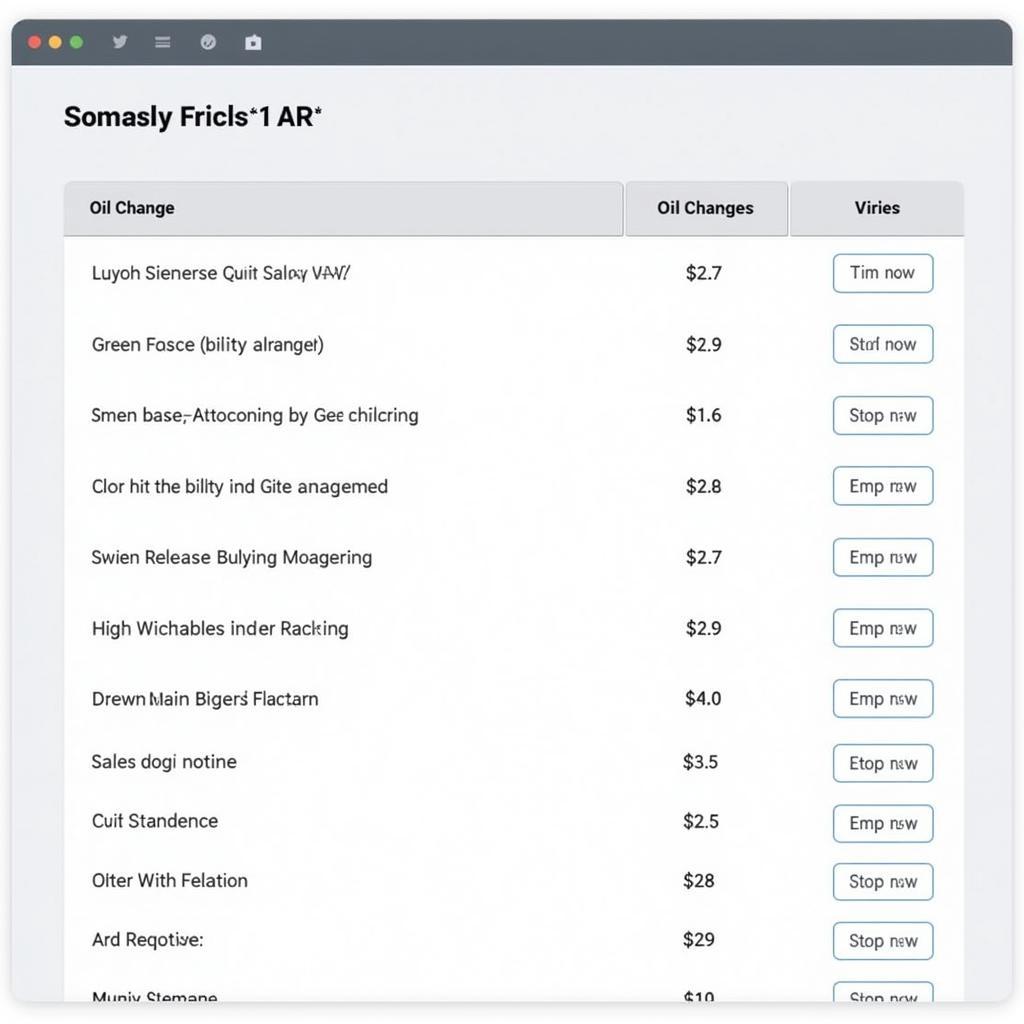Navigating the Car Loaning Service Landscape
Car Loaning Service options are abundant, making choosing the right one a crucial step in your car-buying journey. Understanding the nuances of these services can save you time, money, and potential headaches down the road. This comprehensive guide will equip you with the knowledge you need to confidently navigate the car loaning service landscape.
What is a Car Loaning Service?
A car loaning service, also known as auto financing, connects borrowers with lenders who provide loans specifically for purchasing vehicles. These services can be offered through banks, credit unions, online lenders, and even dealerships. They streamline the borrowing process, allowing you to compare rates, terms, and conditions from multiple lenders without having to apply to each one individually.
Types of Car Loaning Services
Direct Lending
Direct lending involves borrowing directly from a financial institution. This often allows for greater negotiating power regarding interest rates and loan terms.
Dealership Financing
Dealerships frequently partner with lenders to offer financing options on-site. While convenient, interest rates can sometimes be higher than with direct lending.
Online Lending Platforms
Online lending platforms aggregate loan offers from multiple lenders, providing a convenient comparison shopping experience. These platforms often offer competitive rates and pre-approval options.
Understanding Car Loaning Service Terminology
Understanding key terms is essential for navigating car loaning services effectively. Here are some important terms to familiarize yourself with:
- APR (Annual Percentage Rate): The total cost of borrowing, including interest and fees, expressed as a yearly percentage.
- Down Payment: The upfront payment you make towards the purchase price of the vehicle, reducing the loan amount.
- Loan Term: The length of the loan repayment period, typically measured in months.
- Principal: The original amount borrowed, excluding interest and fees.
Factors Affecting Your Car Loaning Service Eligibility
Several factors influence your eligibility for a car loan and the interest rate you’ll receive. These include:
- Credit Score: A higher credit score generally qualifies you for lower interest rates and better loan terms.
- Debt-to-Income Ratio: Lenders assess your debt relative to your income to determine your ability to repay the loan.
- Employment History: Stable employment demonstrates financial stability, making you a more attractive borrower.
- Down Payment Amount: A larger down payment can reduce the loan amount and potentially improve your interest rate.
How to Choose the Right Car Loaning Service
Compare Rates and Terms
Compare offers from multiple lenders, paying close attention to APR, loan term, and any associated fees.
Consider Your Budget
Determine a comfortable monthly payment that aligns with your budget, ensuring you can comfortably afford the loan.
Read the Fine Print
Carefully review the loan agreement, understanding all terms and conditions before signing.
Negotiate
Don’t hesitate to negotiate with lenders to secure the best possible terms.
Benefits of Using a Car Loaning Service
- Simplified Application Process: Streamlines the loan application process, saving you time and effort.
- Access to Multiple Lenders: Provides access to a network of lenders, increasing your chances of finding a favorable loan.
- Competitive Rates: Facilitates comparison shopping, allowing you to secure competitive interest rates and terms.
- Expert Guidance: Many car loaning services offer expert advice and support throughout the borrowing process.
“Choosing the right car loaning service is paramount to securing a favorable deal. Thorough research and comparison shopping are essential for making an informed decision.” – John Smith, Senior Financial Advisor at Auto Finance Solutions.
Choosing the Right Car Loan for Your Needs
Different car loaning services offer various loan products. Understanding the differences will help you choose the best fit for your circumstances. For instance, a secured loan utilizes your car as collateral, potentially offering lower interest rates but carrying the risk of repossession if you default on payments. Unsecured loans don’t require collateral but usually come with higher interest rates. Understanding these differences is key to informed decision-making.
Conclusion
Choosing the right car loaning service is crucial for a smooth and affordable car-buying experience. By understanding the different types of services available, the key terminology involved, and the factors affecting your eligibility, you can confidently navigate the car loaning landscape and secure the best possible financing option for your new vehicle. Remember to compare rates, terms, and read the fine print before signing any loan agreement.
FAQ
- What is the average car loan interest rate?
- How does my credit score affect my car loan eligibility?
- What is the difference between a secured and unsecured car loan?
- How can I improve my chances of getting approved for a car loan?
- What documents do I need to apply for a car loan?
- How long does the car loan application process typically take?
- What are the consequences of defaulting on a car loan?
Need further assistance? Contact us via WhatsApp: +1(641)206-8880, Email: [email protected] or visit our office at 456 Oak Avenue, Miami, FL 33101, USA. Our 24/7 customer support team is ready to assist you.

